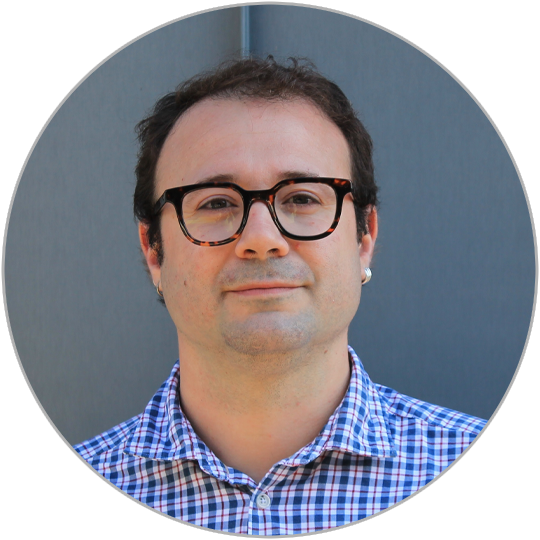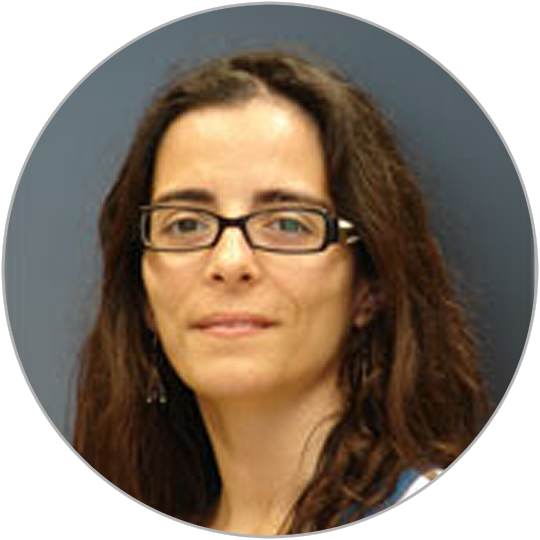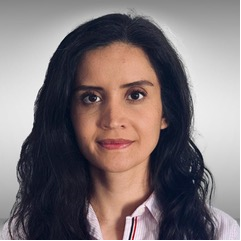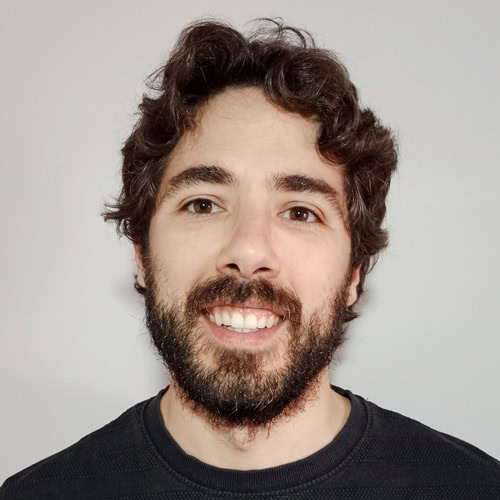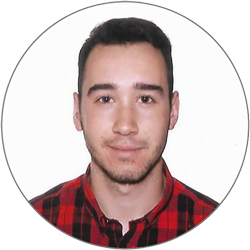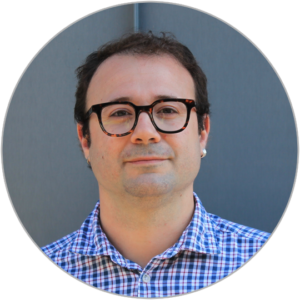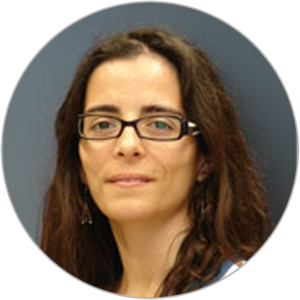Guiu Group
Cell Plasticity And Regeneration
Understanding the process of intestinal regeneration in order to develop treatments for cancer survivors
We aim to improve quality of life for cancer survivors, which suffer side effects of radiotherapy including an acute and chronic inflammation of the intestine. In order to achieve this goal, we study the cellular and molecular mechanisms involved in epithelial recovery after radiation injury. Furthermore we study the establishment of the chronic radiation-induced enteritis with a particular attention to the epithelial-immune cell crosstalk.
Lab focus: Reeducating cells to cure disease; understanding cell plasticity to boost regeneration
The primary function of the intestine is the digestion and absorption of nutrients. The small intestine is composed of proliferative crypts and differentiated villus structures. The adult intestine is lined with epithelium, which is maintained by intestinal stem cells. Radiation therapy is a common treatment used in at least 50% of cancer patients and despite its efficiency in eradicating cancer it induces intestinal toxicity. Radiation triggers apoptosis of proliferative cells, this denudes the intestinal mucosa and in turn results in an inflammatory response; the main features are initially an acute atrophy of the mucosa and at later stages fibrosis of the intestinal wall. The number of cancer survivors with post-radiation dysfunction of intestinal epithelium is continuously rising. However this condition to date has no effective treatments. Our primary goal is to understand the mechanisms triggering these processes in order to develop therapeutic. Recent studies have illustrated that committed following injury have the ability to dedifferentiate and reacquire stem cell potential thus exhibiting previously unappreciated cell plasticity. This condition facilitates a quick and effective regenerative response. The roles of immune cells in this process, which are the cells responsible for triggering the inflammation, remain poorly characterized. We believe that unraveling the mechanisms that govern the ability to transition reversibly between cellular states will impact our understanding of tissue homeostasis and empower us with new and exciting opportunities to enhance intestinal regeneration.
Using state of the art technologies and a plethora of groundbreaking approaches such as patient derived intestinal organoids, complemented by mouse models, lineage tracing, single cell transcriptomics and 3-dimensional imaging we are unraveling the mechanisms that govern the ability to transition reversibly between cellular states. Furthermore, we are characterizing at the cellular and molecular levels the process of mucosa and submucosa injury upon irradiation in order to develop treatments to boost regeneration and reeducate cells to cure fibrosis.
Why it matters
The number of cancer survivors has drastically increased due to decades of research successes. As a consequence, cohorts of patients suffering unintended side effects of cancer therapies have rapidly increased. Cancer patients treated with radiation (radiotherapy) in the abdomen develop radiation-induced enteritis and suffer from bleeding and malabsorption due to mucosa ulceration; moreover half of those patients subsequently develop chronic enteritis characterized by intestinal fibrosis that may eventually lead to intestinal perforation and death in some cases. Current treatments for these pathologies are exclusively symptomatic because there is no medical cure. Therefore, it is imperative to provide mechanistic insights into radiation-induced enteritis in order to develop therapies that directly target and eventually cure these diseases.
News
Researchers discover macrophages’ key role in gut regeneration following radiotherapy and inflammatory bowel disease
The Marató 3Cat finances three IDIBELL projects in sexual and reproductive health
Researchers outline the mechanisms that control the conversion between fetal and adult intestinal stem cells
Jordi Guiu, the new group leader of the Regenerative Medicine Program
Keywords
Regenerative medicine, Radiation induced-enteritis, radiotherapy side effects, intestine, epithelial regeneration, intestinal regeneration, intestinal stem cells, cellular plasticity, lineage tracing, organoids, transcriptomics
Publications
Moraitis I, Taelman J, Arozamena B, Mularoni L, Wienskowska O, Garriga XS, Arregui L, Stefanovic M, Modolell I, Guedea F, Diaz M, Guiu J #. Mucosal macrophages govern intestinal regeneration in response to injury. Gastroenterology. 2025. DOI: 10.1053/j.gastro.2025.01.252.
Quacquarelli F, Davila S, Taelman J, Guiu J, Antfolk M. Optimizing Small Intestinal Organoid-Derived Epithelial Cell Adhesion and Growth in Organ-on-a-Chip Devices. 2025. RSC Advances. DOI: 10.1039/d4ra08290g
Moraitis I, Guiu J#, Rubert J. Gut microbiota controlling radiation-induced enteritis and intestinal regeneration. Trends Endocrinol Metab. 2023. DOI: 10.1016/j.tem.2023.05.006.
Pikkupeura L, Bressan R, Guiu J* et al. Transcriptional and epigenomic profiling identifies YAP signaling as a key regulator of intestinal epithelium maturation. Science Advances. 2023. DOI: 10.1126/sciadv.adf9460
Hansen S, Larsen H, Pikkupeura L, Maciag G, Guiu J et al. An organoid-based CRISPR/Cas9 screen for regulators of intestinal epithelial maturation and cell fate. Science Advances. 2023. DOI: 10.1126/sciadv.adg4055
Taelman, J.; Diaz, M.; Guiu, J#. Human Intestinal Organoids: Promise and Challenge. Front Cell Dev Biol. 2022. DOI: 10.3389/fcell.2022.854740.
Maimets M, Pedersen MT, Guiu J, Dreier J, Thodberg M, Antoku Y, et al. Mesenchymal-epithelial crosstalk shapes intestinal regionalisation via Wnt and Shh signalling. Nat Commun. 2022;13(1):715.
Guiu J#, Jensen KB#. In Vivo Studies Should Take Priority When Defining Mechanisms of Intestinal Crypt Morphogenesis. Cell Mol Gastroenterol Hepatol. 2022;13(1):1-3.
Guiu J#, Jensen KB#. Rebuttal to: Organoid vs Mouse Model: Which is a Better Research Tool to Understand the Biologic Mechanisms of Intestinal Epithelium? Cell Mol Gastroenterol Hepatol. 2022;13(1):193.
Ulyanchenko S, Guiu J#. A Quantitative Lineage-Tracing Approach to Understand Morphogenesis in Gut. Methods Mol Biol. 2021;2258:29-40.
Guiu J*, Hannezo E*, Yui S, Demharter S, Ulyanchenko S, Maimets M, et al. Tracing the origin of adult intestinal stem cells. Nature. 2019;570(7759):107-11.
Yui S, Azzolin L, Maimets M, Pedersen MT, Fordham RP, Hansen SL, et al. YAP/TAZ-Dependent Reprogramming of Colonic Epithelium Links ECM Remodeling to Tissue Regeneration. Cell Stem Cell. 2018;22(1):35-49 e7.
Perea D, Guiu J, Hudry B, Konstantinidou C, Milona A, Hadjieconomou D, et al. Ret receptor tyrosine kinase sustains proliferation and tissue maturation in intestinal epithelia. EMBO J. 2017;36(20):3029-45.
Lopez-Arribillaga E, Rodilla V, Pellegrinet L, Guiu J, Iglesias M, Roman AC, et al. Bmi1 regulates murine intestinal stem cell proliferation and self-renewal downstream of Notch. Development. 2015;142(1):41-50.
Jang IH, Lu YF, Zhao L, Wenzel PL, Kume T, Datta SM, et al. Notch1 acts via Foxc2 to promote definitive hematopoiesis via effects on hemogenic endothelium. Blood. 2015;125(9):1418-26.
Guiu J*, Jensen KB. From Definitive Endoderm to Gut-a Process of Growth and Maturation. Stem Cells Dev. 2015;24(17):1972-83.
Gama-Norton L, Ferrando E, Ruiz-Herguido C, Liu Z, Guiu J, Islam AB, et al. Notch signal strength controls cell fate in the haemogenic endothelium. Nat Commun. 2015;6:8510.
Guiu J*, Bergen DJ, De Pater E, Islam AB, Ayllon V, Gama-Norton L, et al. Identification of Cdca7 as a novel Notch transcriptional target involved in hematopoietic stem cell emergence. J Exp Med. 2014;211(12):2411-23.
Guiu J*, Shimizu R, D’Altri T, Fraser ST, Hatakeyama J, Bresnick EH, et al. Hes repressors are essential regulators of hematopoietic stem cell development downstream of Notch signaling. J Exp Med. 2013;210(1):71-84.
Bigas A, Guiu J, Gama-Norton L. Notch and Wnt signaling in the emergence of hematopoietic stem cells. Blood Cells Mol Dis. 2013;51(4):264-70.
Ruiz-Herguido C, Guiu J, D’Altri T, Ingles-Esteve J, Dzierzak E, Espinosa L, et al. Hematopoietic stem cell development requires transient Wnt/beta-catenin activity. J Exp Med. 2012;209(8):1457-68.
Espinosa L, Cathelin S, D’Altri T, Trimarchi T, Statnikov A, Guiu J, et al. The Notch/Hes1 pathway sustains NF-kappaB activation through CYLD repression in T cell leukemia. Cancer Cell. 2010;18(3):268-81.
Robert-Moreno A*, Guiu J*, Ruiz-Herguido C, Lopez ME, Ingles-Esteve J, Riera L, et al. Impaired embryonic haematopoiesis yet normal arterial development in the absence of the Notch ligand Jagged1. EMBO J. 2008;27(13):1886-95.
Current Members

